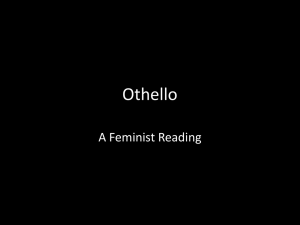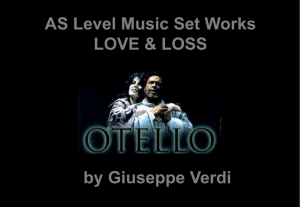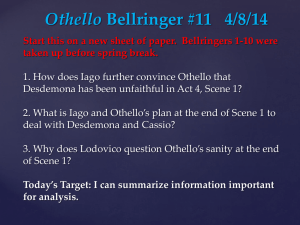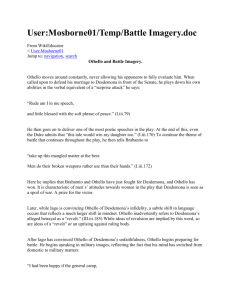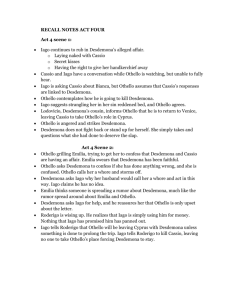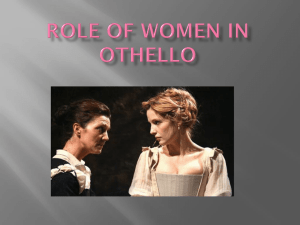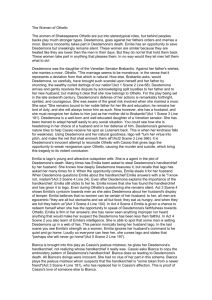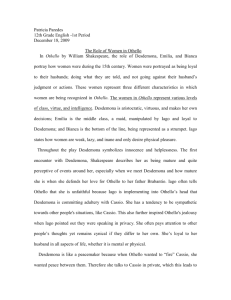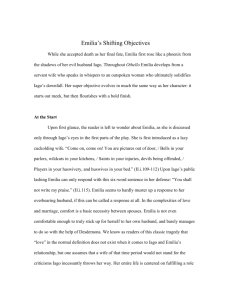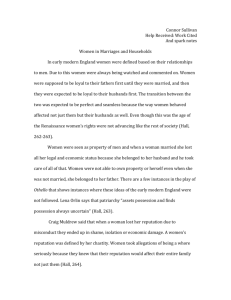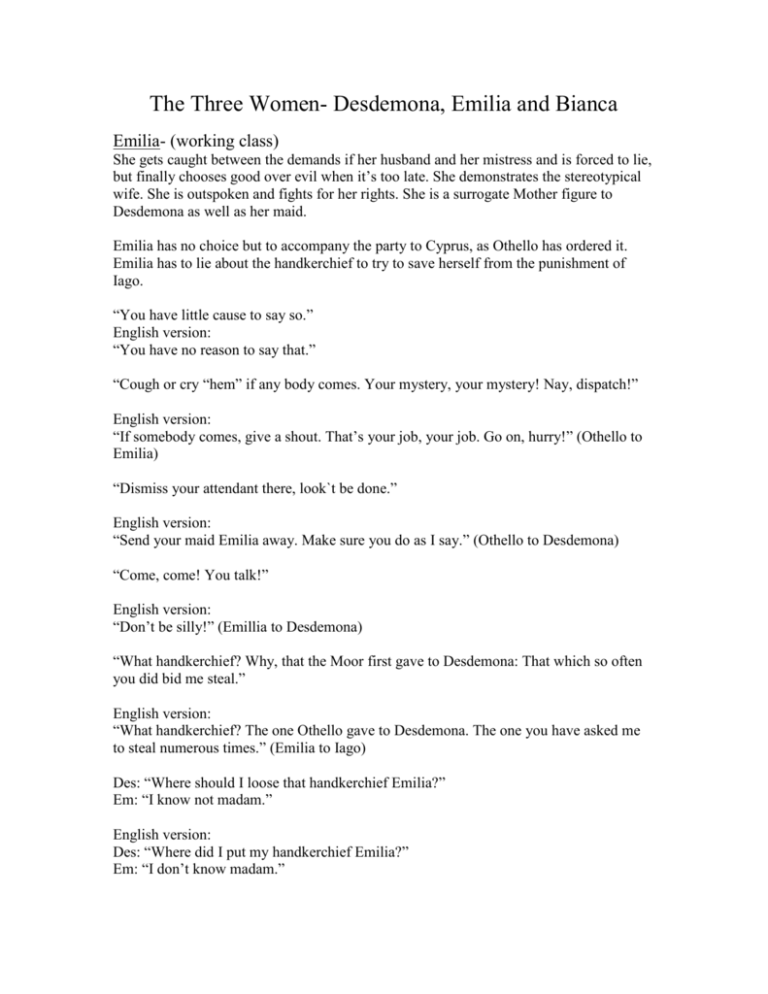
The Three Women- Desdemona, Emilia and Bianca
Emilia- (working class)
She gets caught between the demands if her husband and her mistress and is forced to lie,
but finally chooses good over evil when it’s too late. She demonstrates the stereotypical
wife. She is outspoken and fights for her rights. She is a surrogate Mother figure to
Desdemona as well as her maid.
Emilia has no choice but to accompany the party to Cyprus, as Othello has ordered it.
Emilia has to lie about the handkerchief to try to save herself from the punishment of
Iago.
“You have little cause to say so.”
English version:
“You have no reason to say that.”
“Cough or cry “hem” if any body comes. Your mystery, your mystery! Nay, dispatch!”
English version:
“If somebody comes, give a shout. That’s your job, your job. Go on, hurry!” (Othello to
Emilia)
“Dismiss your attendant there, look`t be done.”
English version:
“Send your maid Emilia away. Make sure you do as I say.” (Othello to Desdemona)
“Come, come! You talk!”
English version:
“Don’t be silly!” (Emillia to Desdemona)
“What handkerchief? Why, that the Moor first gave to Desdemona: That which so often
you did bid me steal.”
English version:
“What handkerchief? The one Othello gave to Desdemona. The one you have asked me
to steal numerous times.” (Emilia to Iago)
Des: “Where should I loose that handkerchief Emilia?”
Em: “I know not madam.”
English version:
Des: “Where did I put my handkerchief Emilia?”
Em: “I don’t know madam.”
Desdemona- Upper Class
She is a Christian who Is White, with the virtues of faith, hope and charity. She is
associated with light, divine but vulnerable. Desdemona is very young and withdrawal of
love she suffers puts her in the position of an abused child. She is forced to deceive her
father in order to win her freedom but she is naïve in choosing Othello (at this time
marrying outside one’s race was uncommon and frowned upon by the community).
Desdemona couldn’t have stayed in Venice, having been outcasted by her Father. She
wants a different life from the one she was born into and her father had in mind for her.
Desdemona has to lie about the handkerchief to try to save herself from the punishment
of Othello.
Desdemona seems doomed at birth by her name meaning ‘unfortunate’. The male
characters all desire or worship her, putting her on a pedestal and from which she will
eventually fall when she is unable to live up to the male ideals of perfection.
“Nor would I there reside, To put my Father in impatient thoughts by being in his eye.”
English version:
“And I wouldn’t stay there. I don’t want to upset my father by being in his house.”
“If she be fair and wise, fairness and wit, The one’s for use the other useth it.”
English version:
“If a woman is pretty and smart she uses her good looks to get what she wants.” (Iago to
Desdemona)
Bianca- Lower class
She shows how society treats its disposed women: she could never expect to marry, or
even be believed, because of her sexual status is seen as indicative of her general moral
character. It is ironic that she is disapproved of and accused of dishonesty by Emilia and
Iago.
She accepts her fate with “I must be circumstanced” (III.4.197). She goes where she can
make a living from soldiers.
“O Cassio, whence came this? This is some token from a newer friend.” (act 3 scene 4
173)
English version:
“Where did you get this? Is this some love – token from a newer mistress.”
“But that you do not love me. I pray you, bring me on the way a little, And say if I shall
see you soon at night.”
“’Tis very good: I must be circumstanced.”
English version:
“I must put up with it.”

